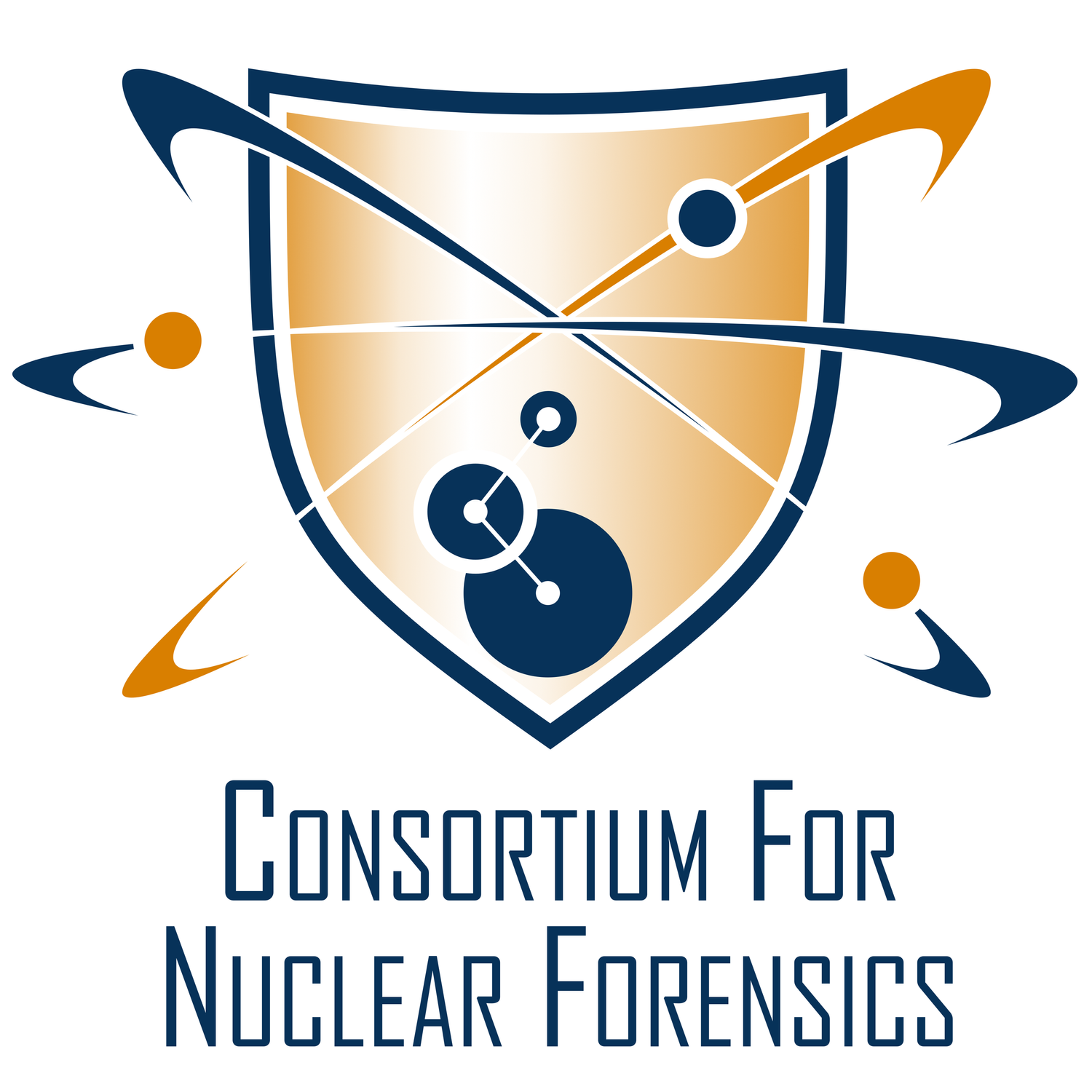
The Consortium for Nuclear Forensics (CNF)
Our objective is to engage students for careers at national labs and address gaps and challenges in technical nuclear forensics, it's essential to create a comprehensive program that offers education, training, and research opportunities. Here's a plan to achieve these goals:
Establish a Consortium: Form a consortium comprising universities, national laboratories, and relevant stakeholders. This consortium should serve as the hub for collaboration, information sharing, and resource pooling. This will provide a platform for students to interact with experts from national labs.
Curriculum Development: Develop a specialized curriculum that includes courses related to nuclear forensics, data science, and high-performance computing. This curriculum should be designed in collaboration with experts from national laboratories to ensure it addresses real-world challenges and needs.
Student Internships: Create internship programs that allow students to work at national labs. These internships should provide hands-on experience and a glimpse into the challenges faced by professionals in nuclear forensics.
Research Opportunities: Encourage and fund research projects that focus on technical nuclear forensics and related national security fields. This will provide students with the opportunity to contribute to the field and address real-world challenges.
Data Science and HPC Training: Offer training programs in data science and high-performance computing (HPC) specifically tailored for forensics applications. These programs should include workshops, seminars, and access to state-of-the-art computing facilities.
Scholarships and Grants: Provide scholarships and grants to students who excel in nuclear forensics and related fields. Financial support can incentivize and support students in pursuing careers in this area.
Collaborative Projects: Foster collaboration between university researchers and national lab experts on projects related to nuclear forensics. Joint research projects can provide students with valuable experience and exposure to the challenges faced by national labs.
Mentorship Programs: Establish mentorship programs where students can be paired with experienced professionals from national labs. This will provide guidance and insight into the career paths available in this field.
Professional Development: Offer workshops and seminars on career development, job opportunities, and career paths in national laboratories. Ensure that students are well-prepared to navigate the complexities of working in this specialized area.
Outreach and Recruitment: Actively promote the consortium and its programs to students through university events, career fairs, and online platforms. Encourage students to participate and showcase the benefits of pursuing a career in national labs.
Evaluate and Adapt: Regularly assess the effectiveness of the program by tracking the career progress of students who have participated. Use feedback to make improvements and adapt to evolving challenges in the field.
By implementing these strategies, you can create a robust pipeline of well-trained students who are eager and equipped to contribute to the nuclear forensics community and related national security fields, ultimately benefiting national laboratories and enhancing the nation's security capabilities.

